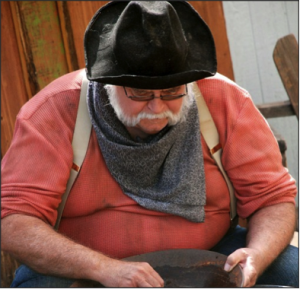ATTITUDE- It’s the KEY Point in Scoring Any Candidate During an Interview
ATTITUDE- it’s really everything!
At Key Corporate Services, we send candidates on interviews daily. And, there’s a simple truth about interviews you need to know. Regardless of the job you are interviewing for, there really are just four areas on which you will be scored. These are attitude, communications skills, technical skills, and ‘team player’ material.
A candidate must score well on each of these four areas during an interview. Doing so will usually result in the candidate getting the job offer.
Of the four areas mentioned above, many interviewers would say ATTITUDE is the most important consideration.
I once had a manager tell me “always hire for ATTITUDE!”
The meaning was simple, skills can be learned, but attitude can rarely be taught. THE single most important trait a candidate must display during an interview is “the right attitude.
The best candidate will often have best attitude!
Many employers consider attitude one of the MOST important considerations when hiring someone. How strong is the candidate’s desire to work for the company? A skilled interviewer will use the interview to “sense” the applicant’s attitude about the job. The candidate has to show a can-do attitude about the job and a high level of excitement about the company.
From a candidate’s perspective, knowing how the hiring manager is judging them on attitude is critical to having a “step-up” on the competition. Some of the techniques used by interviewers to determine ATTITUDE are obvious. They come in the form of open-ended questions like “Tell me about your last job. What did you like about it?”
Like panning for gold nuggets, an interviewer will use questions to understand your ATTITUDE.
Any candidate needs to know they will be asked a series of both situational and behavioral questions to gauge ATTITUDE.
Situational questions provide context, and a good opportunity to gauge attitude by presenting a what-would-you-do scenario: “A customer is rude to you. How would you react?” Such questions give an interviewer insight into the candidate’s ATTITUDE.
Behavioral questions may also be asked to ferret out ATTITUDE. An example might be “Explain a time when you had to exercise self-control.” Other examples might be
“Talk about a time when you had to deal with an irate customer. Give an example of when you were confident in your actions. Detail steps you took to show initiative at work. Explain a time when you had to exercise self-control.”
All of these questions are meant to give the interviewer an understanding of your ATTITUDE.
A candidate must know how to respond to all situational and behavioral questions properly. All answers should be delivered using the ‘STAR’ format, where the candidate states the Situation or Task they faced, the Actions they took, and the Results.
BODY LANGUAGE tells volumes about ATTITUDE!
Body language, facial expressions, and eye contact give off subtle, if not subliminal, information to the interviewer about ATTITUDE. Frequently, it’s the body language demonstrated during an interview that leaves the strongest lasting impression. Negative impressions could result from constant foot tapping, hand wringing and fingernail biting. These all indicate a lack of confidence.
And a candidate should be aware of what they do with their arms during an interview. Crossed arms could suggest the individual is defensive, aggressive or closed-minded.
Eye contact can be a deal breaker!
Lack of eye contact not only makes it difficult for the interviewer to establish a connection, but also makes the candidate appear shy and evasive. If the candidate is coming from a culture where direct eye contact is frowned upon, this could be a challenge. While a ‘seasoned’ interviewer will be aware of this and allow for such cultural differences, the candidate should always try to maintain good eye contact.
Body language communicates a lot about ATTITUDE during the interview.
During the interview, a candidate should have a slight forward-leaning posture toward the interviewer. There should be an openness of both arms and body. And, the candidate should smile often and maintain a positive facial expression.
The posture should be relaxed, but not slouched. A candidate who slouches or leans back in his chair is at a disadvantage when it comes to conveying interest and enthusiasm. Conversely, sitting straight up in the chair and with a slight forward lean exudes enthusiasm.
Your communications skills can convey great ATTITUDE.
Speaking in a comfortable, easygoing, and welcoming way during the interview tells the interviewer a lot about how a candidate will communicate with customers and fellow employees. Speak in concise, full sentences, using proper grammar. Avoid slang verbiage and all profanity. We suggest a candidate come prepared with answers to those inevitable questions asked during any interview. Questions like “tell me about yourself. Tell me why you want this job,” or “where do you see yourself in five years?” are all standard questions a candidate should expect.
Memorize short, concise answers to these standard questions to show confidence and an outlook of empowerment. Doing so will also avoid the mistake of “rambling incoherently”, a sure sign of anxiety or insecurity.
Enthusiasm reflects on ATTITUDE
 Any interviewer will look favorably on candidates who exhibit enthusiasm. And, conveying enthusiasm adds to the comfort level the interviewer must feel when deciding whether this candidate is “right for the job.”
Any interviewer will look favorably on candidates who exhibit enthusiasm. And, conveying enthusiasm adds to the comfort level the interviewer must feel when deciding whether this candidate is “right for the job.”
A candidate who conveys the willingness to “do-whatever-it-takes-to-get-the-job-done” level of enthusiasm may also be perceived as someone with a good “work-ethic.” The smart candidate will look for ways to interject past work examples of initiative and self-confidence. Such examples can help build your image as an enthusiastic candidate with the right ATTITUDE.
An interviewer needs to see the candidate as a good “team player” and a great fit for the company culture. So, he may ask questions about a candidate’s past experiences in handling difficult situations. While he is trying to find out if this candidate can make good decisions, it will also tell him if the candidate can maintain a positive ATTITUDE under duress.
Any interviewer is looking for a candidate who can be a problem solver, goal setter, and team player. So a candidate should come prepared with concise examples of past behavior that reflect these characteristics. Being able to weave these examples into the interview is critically important.
It may give the candidate an “A” on that all-important measurement- ATTITUDE!



